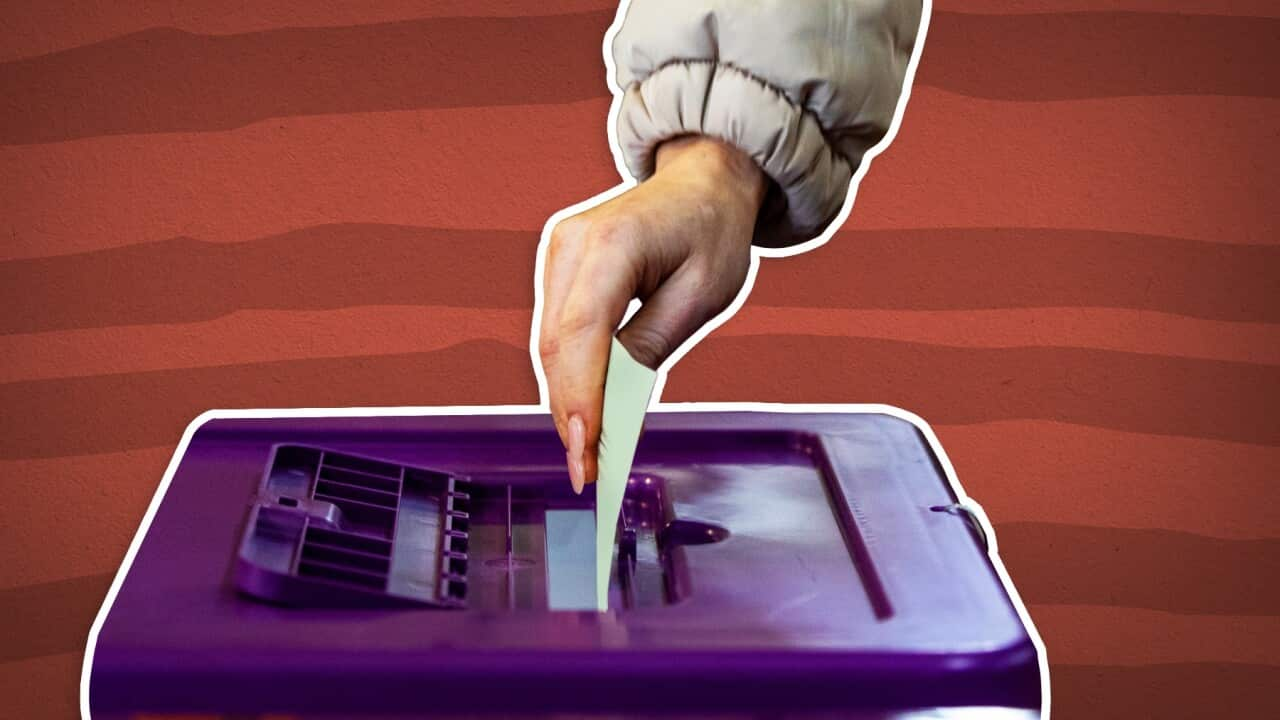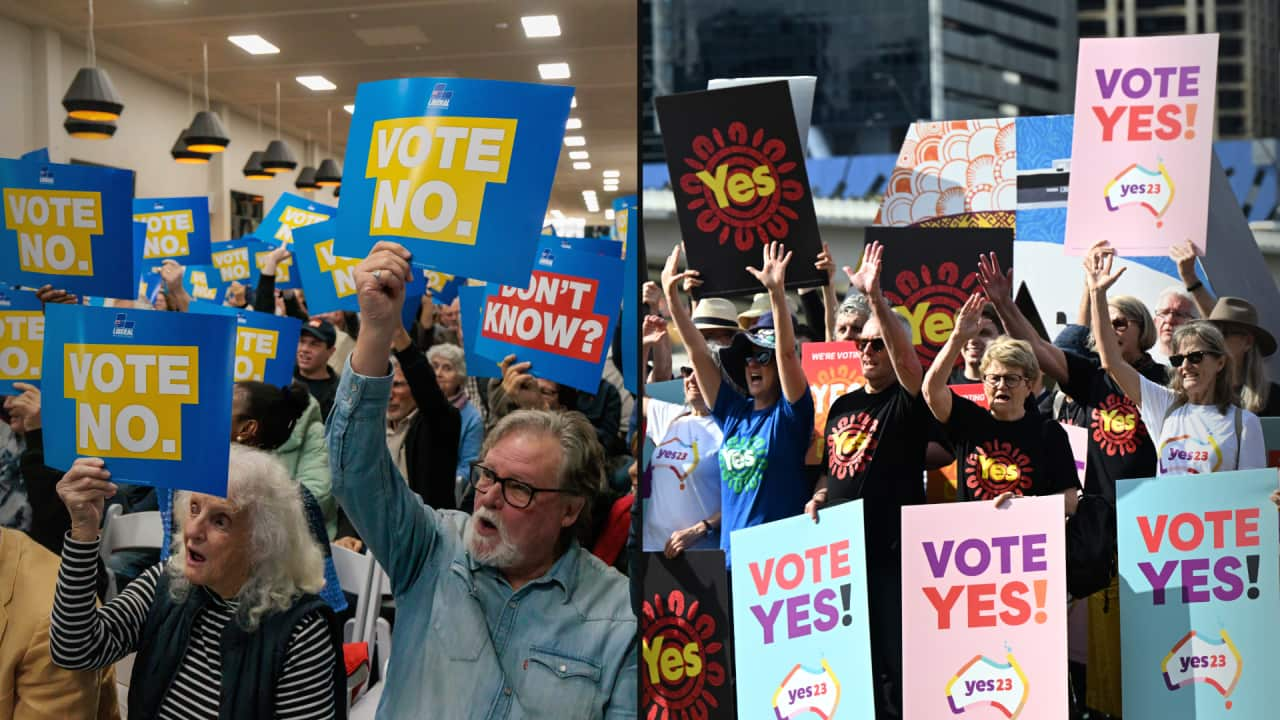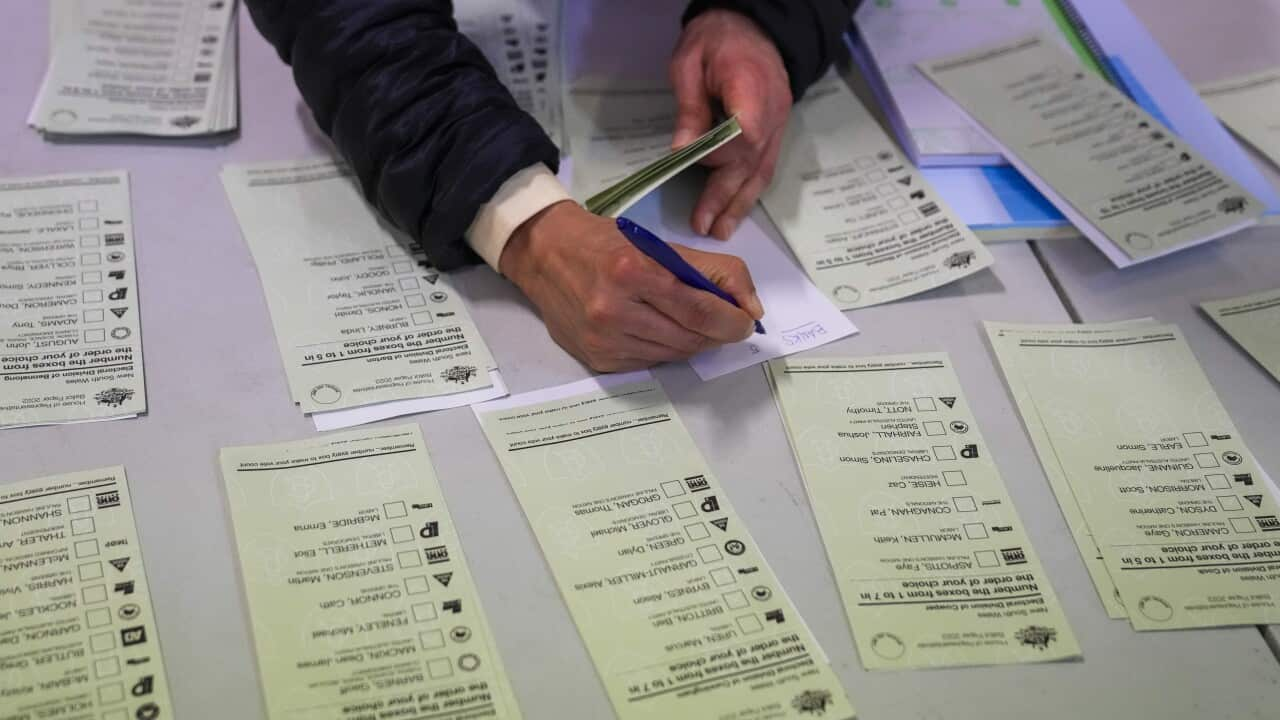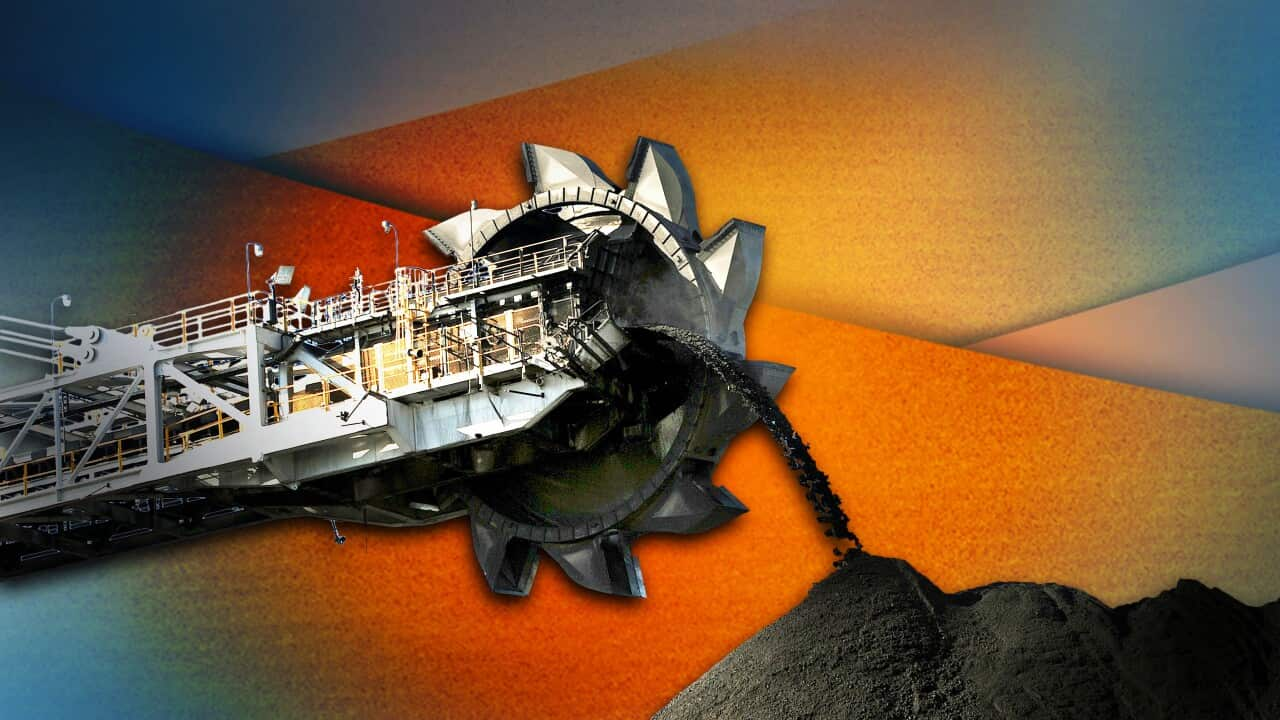KEY POINTS:
- The AEC says social media companies are reluctant to take down misinformation.
- Remote voting in the Voice to Parliament referendum starts next week.
- A judge has dismissed a legal challenge over the ticks and crosses controversy.
Social media companies are increasingly reluctant to remove posts the Australian Electoral Commission (AEC) believes are misinformation, despite what its chair describes as "tinfoil-hat-wearing bonkers" conspiracies circulating online.
And with voting in remote areas for the Indigenous Voice to Parliament referendum to open next week, planes and boats will soon deliver ballots to Australia's most far-flung areas.
More than 17.6 million Australians had become eligible to vote by the time enrolment closed on Monday, meaning the highest enrolment level - 97.7 per cent - in the nation's history. That also included an unprecedented level of Indigenous enrolment, which now stands at 94.1 per cent.
But with a surge in postal voting applications, AEC commissioner Tom Rogers warned Australians won't know the result for days if the 14 October vote is extremely close.
And Rogers said the first Australian referendum of the social media age was being marred by a uniquely toxic online atmosphere.
“We've seen higher levels of … vitriol online than we've ever seen for any electoral event,” he said.
“There are things that we're seeing in social media more broadly that then wash into this event.”
'Mad conspiracies', threats to electoral officers increase
Rogers warned Australia was not immune to a "global reduction in respect for [election] referees", revealing his agency has "worked closely" with police and other security agencies.
"We've certainly seen more threats against [AEC] staff than we've seen previously, which I think is a disgrace," he said.
"And without wishing to blow this up into a big event, or take on the internet, some of the stuff we've seen is, frankly, tinfoil-hat-wearing bonkers."
Rogers said that included "mad conspiracies" about Dominion voting machines being used at Australian polling stations, a conspiracy theory imported from the US. Australia does not use voting machines.
In April, Dominion settled a defamation suit worth roughly $1 billion against Fox News, which aired false claims the company was involved in a plot to steal the 2020 election from former US president Donald Trump.
Rogers said the problem was compounded by a "general reduction in [social media companies'] overall willingness" to remove content.
The AEC has referred 54 pieces of content to social media companies this year. Sixteen have been acted upon, one decision is pending, and the remainder were deemed not to violate the platform's terms of service.

Tom Rogers says the AEC is struggling to convince social media platforms to remove 'thinly veiled' threats to its staff. Source: AAP / Lukas Coch
"We've referred those two platforms, and almost universally they come back and say that it doesn't breach their standard. So things are changing."
Elon Musk has taken over X, formerly Twitter, since the 2022 federal election and concerns have been raised over misinformation and hate speech on the platform.
The Guardian also reported this week that X had repeatedly ruled that posts flagged by the AEC did not violate its terms of service.
But Rogers would not be drawn on whether X's approach had changed under Musk's leadership, saying: "I don't want to pick a fight with individual companies".

The Voice referendum ballot will come with clear instructions to write 'Yes' or 'No'.
Judge dismisses ticks and crosses challenge
The AEC has again urged Australians to write either "Yes" or "No" in English, in full, on their ballot papers to ensure their vote would count.
Last month, members of the No camp claimed the AEC was trying to influence the result, after Rogers confirmed ticks would be accepted as a Yes vote, but crosses would be discarded.
"I get nervous talking about it, because every time I mentioned it, it lodges in someone's brain that it's okay to vote that way," he said.
While the AEC is directed to consider the intent behind markings on a ballot paper, crosses have long been viewed as ambiguous because they are used to mark an affirmative on other forms.
Coalition leader Peter Dutton claimed the rule, which has been in place for multiple referendums, marked a "departure" from the AEC's normal practices. The Coalition did not try to amend the rule when it passed the referendum machinery bill in March.
"Just make it a fair process instead of trying to load the system and trying to skew it in favour of the Yes vote," he said.
On Wednesday, the Federal Court dismissed a challenge from United Australia Party Senator Ralph Babet, and his party's billionaire funder Clive Palmer, over the issue.
In dismissing their application, Justice Steven Rares said a cross could indicate agreement, disapproval or an unwillingness to answer the question at all, while a tick could either indicate approval or an affirmative response.
Rogers was pleased by the "emphatic" ruling, but noted parliament was responsible for setting how ticks and crosses were interpreted, and the AEC "made no decision" on the matter.

A judge has dismissed the United Australia Party's challenge over the validity of crosses on the ballot paper. Source: AAP / James Ross
Remote voting starts, bushfire contingencies in place
Aircraft, boats and four-wheel-drives will head to the most remote parts of the country next week to enable the first votes in the referendum to be cast.
Remote-area voting gets underway on Monday, with early voting centres across the states and territories between 2 and 3 October.
Plans are in place to deal with any disruptions from bushfires once early voting starts, with a command centre working closely with emergency services to plot problem areas.
Soaring temperatures led to the closure of more than 20 schools on the NSW south coast this week, with the bushfire warning upgraded to catastrophic.
And with school halls often used as voting sites, Rogers confirmed plans were in place to deal with any disruptions from bushfires once early voting starts.
"We will be going the extra mile to ensure all Australians have access to voting."
- With additional reporting from AAP.
Stay informed on the 2023 Indigenous Voice to Parliament referendum from across the SBS Network, including First Nations perspectives through NITV.
Visit the to access articles, videos and podcasts in over 60 languages, or stream the latest news and analysis, docos and entertainment for free, at the












